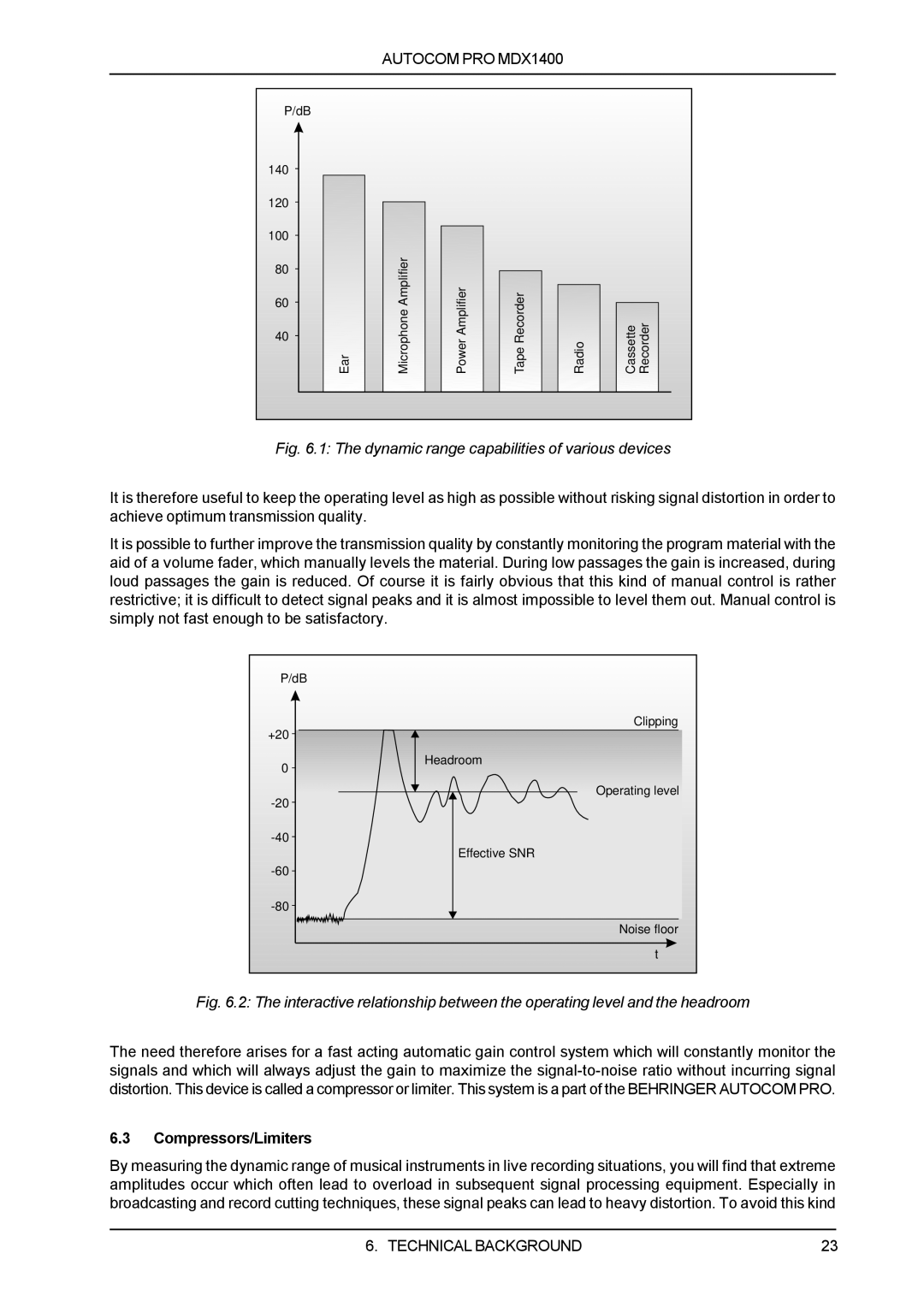
AUTOCOM PRO MDX1400
P/dB |
|
|
|
|
|
140 |
|
|
|
|
|
120 |
|
|
|
|
|
100 |
|
|
|
|
|
80 | MicrophoneAmplifier |
|
|
|
|
60 | PowerAmplifier | TapeRecorder |
|
| |
40 | Radio | Cassette Recorder | |||
Ear |
Fig. 6.1: The dynamic range capabilities of various devices
It is therefore useful to keep the operating level as high as possible without risking signal distortion in order to achieve optimum transmission quality.
It is possible to further improve the transmission quality by constantly monitoring the program material with the aid of a volume fader, which manually levels the material. During low passages the gain is increased, during loud passages the gain is reduced. Of course it is fairly obvious that this kind of manual control is rather restrictive; it is difficult to detect signal peaks and it is almost impossible to level them out. Manual control is simply not fast enough to be satisfactory.
P/dB |
Clipping |
+20 |
Headroom |
0 |
Operating level |
Effective SNR |
Noise floor |
t |
Fig. 6.2: The interactive relationship between the operating level and the headroom
The need therefore arises for a fast acting automatic gain control system which will constantly monitor the signals and which will always adjust the gain to maximize the
6.3Compressors/Limiters
By measuring the dynamic range of musical instruments in live recording situations, you will find that extreme amplitudes occur which often lead to overload in subsequent signal processing equipment. Especially in broadcasting and record cutting techniques, these signal peaks can lead to heavy distortion. To avoid this kind
6. TECHNICAL BACKGROUND | 23 |
